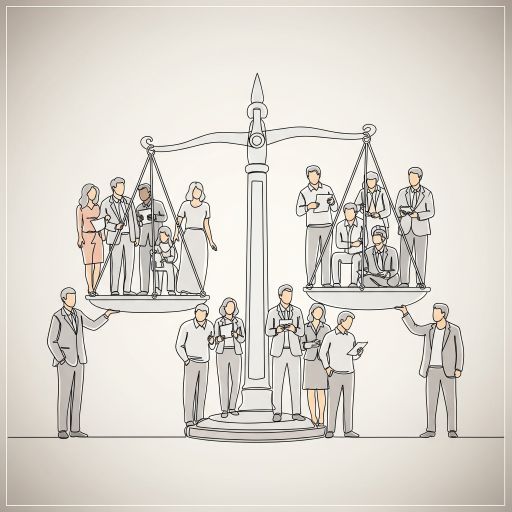Liberty Matters
David Boaz Knew to Reject Entangling the Cause of Liberty with Rank Bigotry

In his landmark essay “Why I Am not A Conservative,” F. A. Hayek opened with an epigram from Lord Acton, the great 19th century classical liberal: "At all times sincere friends of freedom have been rare, and its triumphs have been due to minorities, that have prevailed by associating themselves with auxiliaries whose objects often differed from their own; and this association, which is always dangerous, has sometimes been disastrous, by giving to opponents just grounds of opposition."
This insight carries immense weight today, particularly for advocates of liberty confronting an era rife with hateful rhetoric and authoritarian impulses masquerading under the banner of a populist anti-establishment crusade. Lamentably, the broader libertarian movement has too often provided exactly the “just grounds of opposition” which so concerned Acton and later Hayek.
David Boaz understood this all too clearly. He spent his career making the case for liberty while fiercely rejecting any alliance with bigotry, prejudice, or hatred. David recognized that liberty is, at its core, a universal value grounded in the equal dignity and rights of every individual. To compromise these foundational principles by partnering with hatemongers was, in David’s view, both morally repugnant and strategically disastrous.
The rise of the alt-right, with its ugly presence on social media and increasing visibility in mainstream politics, underscored the urgency of David’s message. He openly expressed disgust for those who claimed to see a path to smaller government or greater freedom through racism, sexism, homophobia, or other forms of vile and ignorant supremacism. He understood profoundly that liberty is indivisible—that one cannot credibly advocate freedom while simultaneously embracing ideologies fundamentally opposed to human dignity and equal rights.
In his final public speech, David emphatically stated:
"So when you see self-proclaimed freedom advocates talking about blood and soil or helping a would-be autocrat overturn an election, or talking about LGBT equality as degeneracy, or saying we shouldn't care about government racism against Black people, or defending the Confederacy and the cause of the South, or joining right-wing culture wars and supporting politicians who want to use the state to fight their enemies, or posting Holocaust jokes and death threats on Twitter, recognize that for what it is. Speak up, fight back, tell people that's not America and it's certainly not libertarianism."
David's clarion call is unmistakable, and he found plenty of foundation for it in the leading figures of 20th century American libertarianism. As Ayn Rand put it, sincerely even if she didn’t always live up to it, “Racism is the lowest, most crudely primitive form of collectivism.” Ludwig von Mises also derided the idea of “racial polylogism” as he called it, the notion that there is any inherent difference in the principles of human thought and action based on arbitrary categories like race. But it wasn’t a spotless record and David didn’t whitewash that. He often expressed his regret that libertarians were almost entirely absent from the fight for civil rights and the dismantling of segregation even though they had been on the vanguard of just causes like abolishing the draft and gay rights. It was a tragic mistake then, and it’s a mistake now when free marketeers look the other way at assaults on the individual rights of society’s most marginalized and oppressed.
To build alliances with the purveyors of humanity’s basest impulses is to poison the very foundation of our radical liberal principles. Such alliances betray the moral clarity essential to advocating for genuine freedom and give ammunition to those who wish to caricature libertarianism as a veneer for reactionary or oppressive ideas. To put it bluntly, that accusation has been proven true for many of our erstwhile friends and allies.
To embrace liberty authentically is to embrace human dignity in all its diversity. The fight for smaller government and greater individual freedom is inseparable from the fight against prejudice and intolerance. Following David’s example means holding ourselves and our allies accountable, even when it is painful or inconvenient. Freedom is for all or it’s not freedom at all. David knew that, and we should never forget it.
Copyright and Fair Use Statement
“Liberty Matters” is the copyright of Liberty Fund, Inc. This material is put on line to further the educational goals of Liberty Fund, Inc. These essays and responses may be quoted and otherwise used under “fair use” provisions for educational and academic purposes. To reprint these essays in course booklets requires the prior permission of Liberty Fund, Inc. Please contact oll@libertyfund.org if you have any questions.